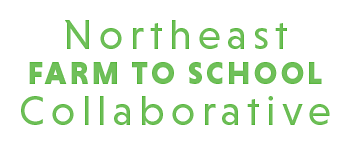Vermont
Honoring Identity in the Classroom: Students Embrace Their Food Story
Food—growing it, cooking it, and sharing it—can be a powerful connecting force within schools. “We can do lots of different projects around food systems,” shares Champlain Elementary School (Burlington, VT) fifth grade teacher Aziza Malik. “We can do science experiments through it, we can learn about fractions through cooking, we can write poetry about what we're eating, or more technically, recipes. It's pretty hard to find something that can do all that.”
But whose food is represented in this learning? Whose food is excluded?
A Cup of Chai & A Magical Moment
Champlain Elementary holds an annual Olympics, when each classroom represents a country and participates in school-wide events. One year, Aziza’s classroom just so happened to be assigned to India, her father’s home country. “So we started doing all these Indian cooking activities,” Aziza explains, “And, of course, my family’s number one activity is drinking chai.”
Aziza brought in her family’s chai recipe and all the ingredients to make a big batch for the classroom. She poured warm, sweet mugfuls of tea and passed them out to students. A squeal of joy erupted, This is my tea! Aziza discovered one of her students, a New American from Africa, also drank chai with his family.
“The next day he came in with his little bags of black Lipton tea, and asked, Can we make it again?” Aziza laughs. “And it was just the sweetest, most wonderful thing. There was just that connection and feeling of home. That representation is just everything. I want to create more moments like that, where we're creating those connections.”
As Aziza continued to weave food systems into her curriculum, she found the farm to school resources available were often missing a crucial element: the student experience, and the many complicated ways we all connect to the food that nourishes us.
Aziza and her students make chai in her classroom. Photo by Sarah Webb.
What’s Your Food Story?
It’s important for students to learn about healthy, local foods, and so is discovering their authentic food experiences and traditions — regardless of the ingredient list. Aziza collaborated with Ferene Paris Meyer, a local storyteller and educator, to bring the tools of creating authentic personal narratives into the food systems learning happening in her classroom.
“Ferene started getting the students thinking about all these different ways that food is in our lives,” Aziza remembers. The storytelling workshops culminated in a student storytelling circle, where they presented their stories to one another, family, and friends. “And there was no judgment about the food whatsoever,” Aziza shares. “They could talk about anything at all. It could be about mac and cheese—a lot of people talked about candy—and just the stories that came out were really incredible. Real, deep emotional stories.”
Everyone eats, and food, like storytelling, connects us all. It’s these shared experiences that make for lasting, meaningful learning for students and adults alike. “[Ferene] taught us how to combine food stories with our identity,” a student shared as he began the storytelling circle. “She taught us about why storytelling is important. It encourages you to slow down and be in the moment. Live with purpose and live out loud. Take ownership of your own narrative. And it reminds grown ups that kids have important things to say, too. Most importantly, she taught us we all have stories worthy of telling. So what’s yours?”
The students gather for a group photo with Ferene Paris Meyer. Photo by Sarah Webb.
Listen to Some of Aziza’s Students:
Aziza and students harvest peppermint from the school garden. Photo by Sarah Webb.
Questions? For more information about this project, contact the Vermont Farm to School & Early Childhood Network at info@vermontfarmtoschool.org.
← Back to the Harvest of the Month & Inclusivity landing page



